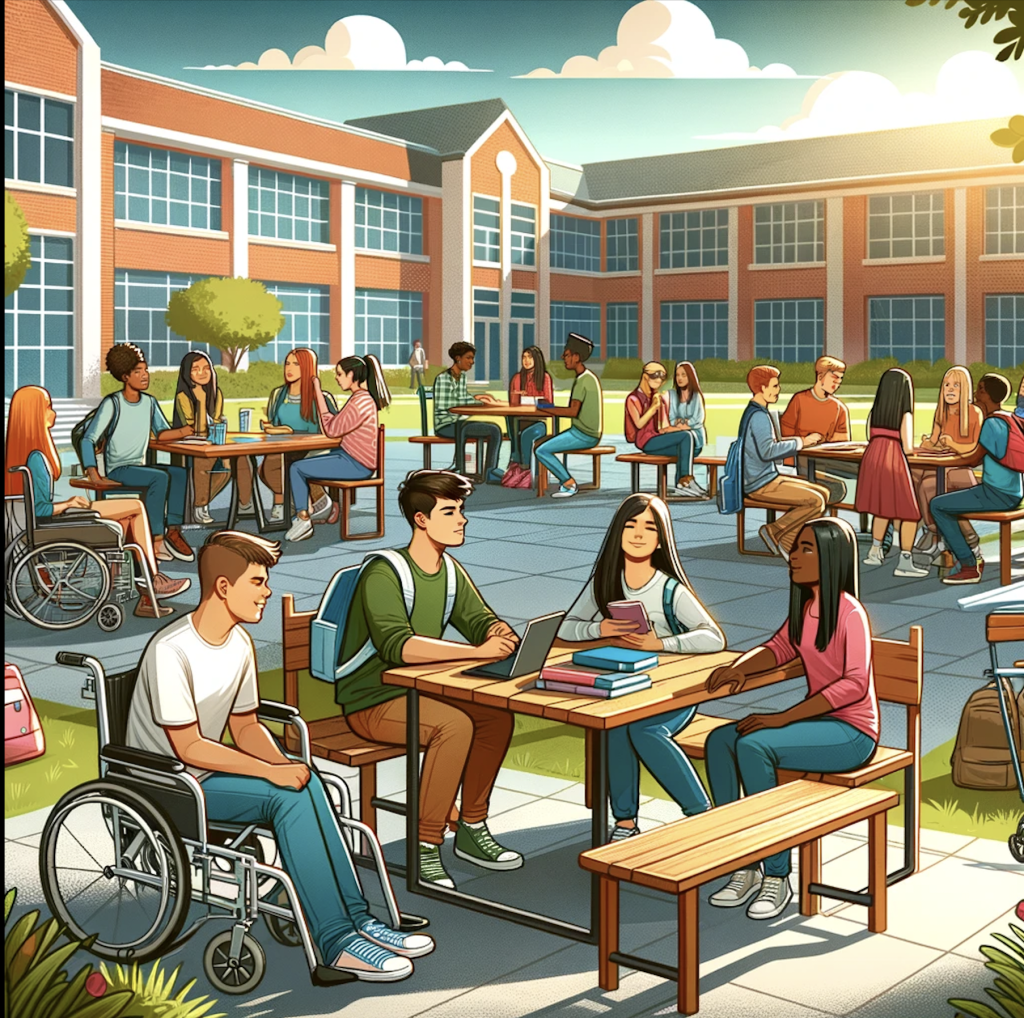Self-efficacy

Image Source: Chat GPT 4
Self-efficacy, a belief in one’s ability to accomplish tasks and achieve their goals, can have far-reaching effects on a child’s academic and social success (Demerdash, 2020; Weissberg, 2016). Early on, self-efficacy is closely tied to mastering specific tasks. A child who can successfully climb the tallest structure on the playground may experience high self-efficacy for climbing, but this may not translate into high self-efficacy for making it across the monkey bars. Praise from caregivers can also play a role in early self-efficacy development, with children in more supportive environments likely to develop higher general levels of self-efficacy, compared to those in less supportive environments (Srasser et. al, 2023). As children progress from elementary to middle school, self-efficacy begins to extend beyond the family environment and specific tasks to incorporate broader domains of competence (Bandura, 1996). Children’s school experiences, along with increased social interactions, significantly influence their sense of self-efficacy. At this stage, social comparison becomes a potent source of self-efficacy beliefs. Children compare their skills and achievements with those of their peers, which can boost or undermine their self-efficacy, depending on how they perceive their own competence. In addition, self-efficacy starts to influence children’s academic motivation, their selection of activities, and their perseverance when facing challenges. Those with low self-efficacy may be less likely to persevere and more likely to avoid environments where they believe they cannot succeed (Pulfrey, Buchs & Butera, 2011). At this stage, self-efficacy is also influenced by vicarious experiences (observing others’ performance), verbal persuasion (encouragement or discouragement from others), and physiological and emotional states (e.g., anxiety can undermine self-efficacy) (Siegle, 2000).
Think, Write, Share
- How is self-efficacy in young children primarily developed, and what role do caregivers play in its early development?
- In what ways does self-efficacy start to evolve as children transition from elementary to middle school, and which factors start to play a more significant role in its development?
- Why is it important for children to develop a strong sense of self-efficacy, and how can it impact their overall academic and social success?
Application Challenge
Choose a specific task or skill that you would like to master or improve. This can be academic, social, or personal. Create a goal and outline the steps you plan to take to achieve it over two weeks. Then, document your progress and any challenges you experienced along the way. After two weeks, reflect on your experiences and identify at least two things you learned that you believe you could apply to your future teaching.